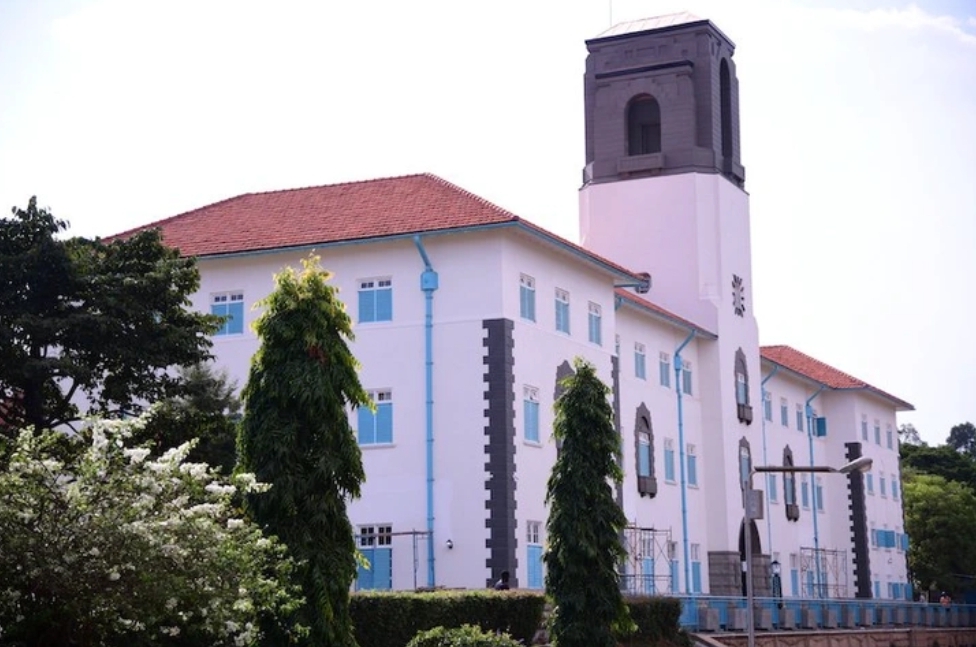Why Makerere ought to retain its professors as long as can still talk

There is a Ugandan virologist – a retired professor – who once told me a memorable story that captures a core part of the absurdity of the system that Bwana Yoweri Museveni has cultivated and presided over since coming to power. I will not say his name.
This wonderful gentleman told me that throughout the Covid-19 pandemic, he would spend endless hours online with Dr Antony Fauci and his team as the Americans consulted with him on viruses.
I then asked him if any Ugandan ministry of Health official ever sought his expertise because we needed all hands on deck. He told me that in Uganda, once one retired – that is, reaching 65 years of age – they are considered expired and unwanted. Maybe even a threat to the new folks in office.
But picture this: As the Americans sought the wisdom of a Ugandan ensconced in a small village in northern Uganda, the Ugandan government was on radio and TV waiting for guidance from the Americans/ WHO. This is beyond mental colonialism. It is lunacy.
There are two dangerously misguided arguments often chanted against professors who reach the age of 65 – forgetting that professors are a special breed. The first argument is framed as a question: “why would a professor reach retirement without training people to seamlessly replace him?”
The second is an arrogant claim, which masquerades as a philosophical intervention: Nature does not accept a vacuum, and new people will be trained to take the place of the departing professor.
They even challenge further: “if you are opposed to Museveni holding on power at 82, why would you argue in favour of a professor holding on to his job after 65!” What an absurd comparison! (By the way, for the record, I have no problem with a politician ‘over-staying’ in power. My problem is the emptiness of their stay).
The first problem is that talkers tend to see a professor only through the lens of employment: another job freed for young blood – like professors were athletes. Being a professor – in the true sense of the word – is a product of not just talent, but intense immersion and years of sacrifice.
Especially in sub-Saharan Africa, where not many ever end as professors, our few professors ought to be seen as national assets – in their different fields of expertise. But because of the anti-intellectualism under our Yoweri Museveni, any Tom and Dick can do the job.
That is how the recently-renovated Entebbe Airport lounge turned out the way it did. Among many other examples. Secondly, academics and professors are not factory workers. They aren’t ‘factory hands’ on an assembly line, whose genius is simply the dexterity of their hands.
Sadly, this is the ugly capitalistic mindset – which does not even respect factory workers – that is the most prevalent among Makerere University leadership. They have turned this place into a factory of sorts – gated, and with a clock-in system.
It has escaped them that intellectual production is immersion, endless hours of work, creative thinking, writing and re-writing, inspiration, and persistence. It is research, debate, quiet time, et cetera. This energy cannot be reduced to man-hours measured via a clock-in system.
PROMOTIONS AS WEAPONS
Because of this awareness that (a) professors get better with age and experience, and (b) that Makerere is still understaffed at 42 per cent, earlier administrators crafted a policy to keep retiring professors.
Sadly, Makerere’s current leadership has turned promotions into weapons – all promotions. They nowadays use promotions to silence, expel or simply put academics in line. The NRM- line. Thus, once seen as too critical of their decisions (Dr James Ocita), too critical of government (Prof John Jean Barya; Dr Stella Nyanzi, among others), they will wait for you at that moment when you need a promotion.
Any promotion – could be from lecturer to senior lecturer, associate professor to professor or a post-retirement contract. That is if they were unable to knock you out earlier on some disciplinary issue or other.
Have you ever wondered why hitherto a place of vibrant intellectual activity, necessary noise, debate and activism, Makerere is now as quiet as a church mouse? Promotions. And as you can imagine, not all scholars are warriors.
Most of them, like many people, are ordinary folks only ready to contribute their learning in spaces that respect their learning. Even brave folks like comrade brother Dr Jimmy Spire Ssentongo are living a life of a drunkard’s chicken: while others are chickens that would be worried only during the Christmas season; the one belonging to the drunkard is worried every day.
We ought to chasten ourselves with the fact that although Makerere is losing its most experienced workforce – and its ranking – many departing professors have joined other public universities in Uganda. But consider the cost of losing them to foreign countries or just frustrating them into early retirement.
Just one point: for a university that actually survives on grants (perhaps the only reason many haven’t left), Makerere ought to be fighting blood and tears to retain any of all its accomplished folks.
It does not matter whether they are the ones applying for these grants. But the fact that they are associated with a university, they are giving lectures, attending faculty meetings, and supervising PhDs.
This gives funders confidence to reward junior applicants. Can you imagine that at just 63 and 65 respectively, Prof Sylvia Tamale and Prof Joe Oloka-Onyango aren’t associated with Makerere anymore!
Can you imagine Prof Nelson Sewankambo (74); Prof Philipa Musoke (68); Prof Sr. Domnica Dipio (64) and over 40 others at the rank of professor aren’t associated with our most prestigious university anymore.
Against all reasons, at an understaffed university, these are folks you fight to keep – by all persuasive means



0 Comments